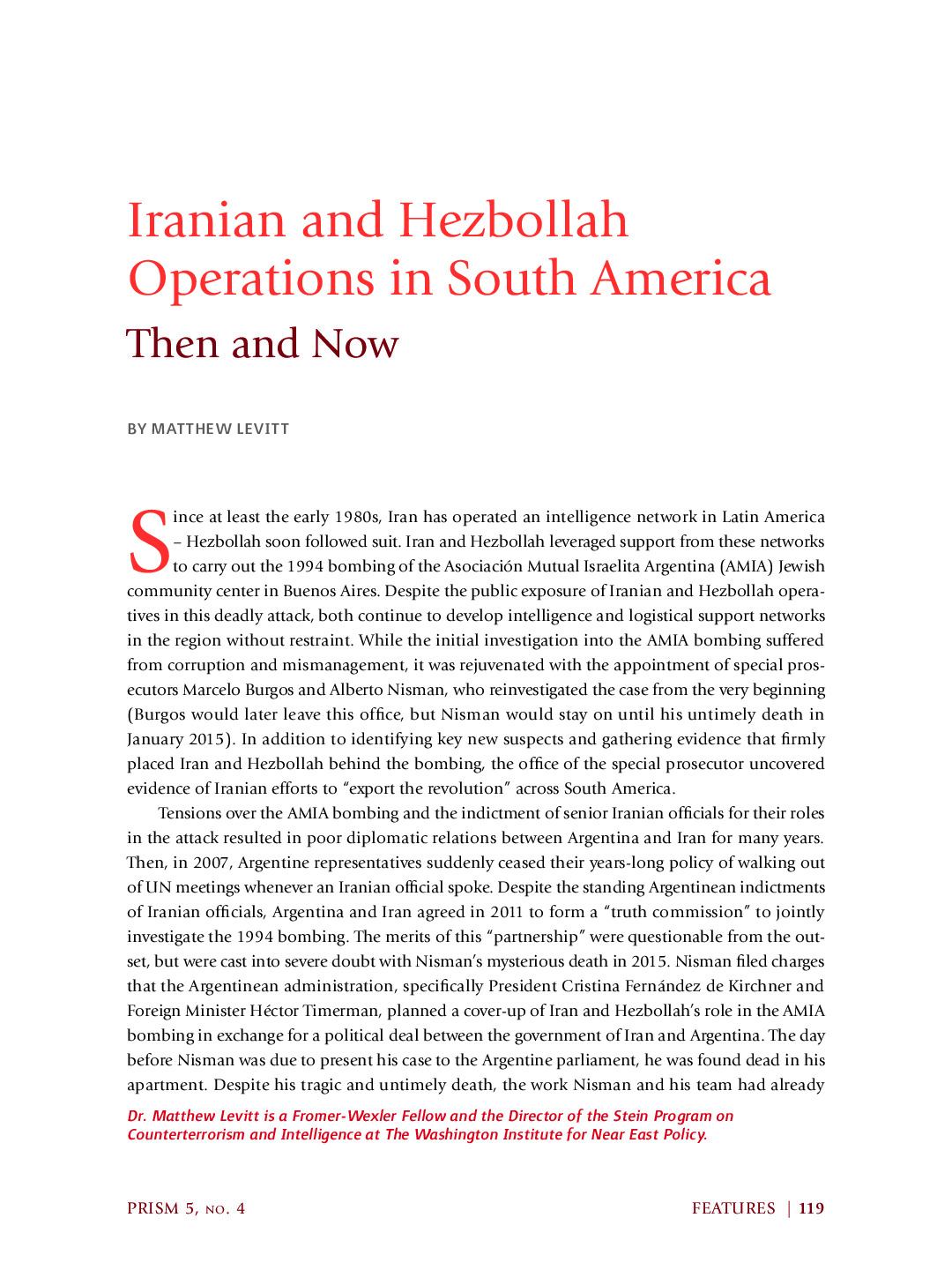Tehran and its main proxy have increased the tempo and scope of their malign activities on the continent, so Washington and its allies need to devote the requisite resources to countering what has become a clear and present danger.
American officials are deeply concerned about the rise of Iranian intelligence activities in the region, as well as Hezbollah operational activities in the region that are now complementing the group's longtime logistical and financial support activities there. While Hezbollah continues to raise significant sums of money through illicit business and smuggling in the tri-border area and other free trade zones in the region, its activities have spread far beyond these well-known hot spots and include not only logistics and financing, but terrorist operational planning as well.
Iran, for its part, has also been tied to operations in the region, but is far more invested in building up a robust intelligence network spanning the length of the southern half of the Western Hemisphere. Coming on the heels of the Iran nuclear deal, these activities are even more disconcerting. Whether, or how soon, Iran cheats on its nuclear commitments, U.S. officials cannot say. But there is broad consensus that the international community needs to be prepared to deal with Iran's ongoing non-nuclear "malign activities" and "menacing behavior," as Treasury Secretary Jack Lew put it. U.S. officials have similarly noted the administration's commitment to "target the full range of Hezbollah's activity, including terrorism, criminal activity, and its destabilizing conduct in the [Middle East] region."
In light of their long history of "menacing behavior" in South America, and even more so given the increased tempo and nature of their "malign activities" in the region, it is critical that the necessary attention and resources be devoted to tracking and countering the threats they portend. In the age of the Iran Deal, foreign terrorist fighters, and the rise of the Islamic State, there is tight competition for bandwidth and dollars for other priorities. Though recently much of Latin America has aligned with western interests, that alignment cannot be taken for granted. American influence in the region now competes with influence from highly motivated extra-regional powers. As the U.S. adapts to a rapidly changing global security environment, the threat posed by Iran and Hezbollah in the Western Hemisphere, a key geo-strategic interest and historic stronghold of American influence, should be recognized as a clear and present danger...
To read the full article, download the PDF.
PRISM




